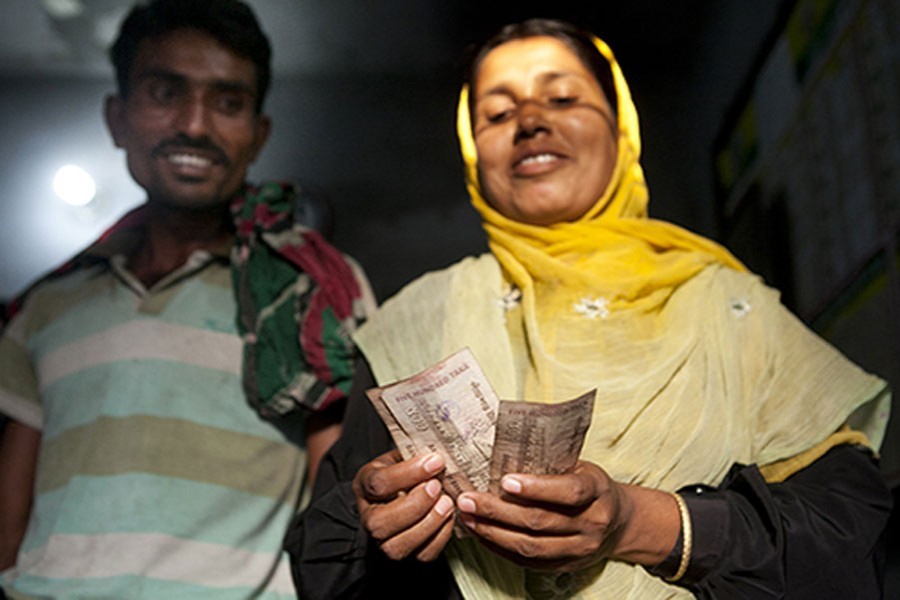The government launched an action plan for the National Social Security Strategy (NSSS) on Sunday with models of South Africa, Lesotho and Nepal.
The NSSS aims to build an inclusive social security system (SSS) for all deserving Bangladeshis.
It effectively tackles poverty and inequality and contributes to broader human development, employment and economic growth.
Conceived in 2011, the NSSS was drafted in 2015 and finalised in 2017 with reforms in the previous complex set of safety-net programmes.
The NSSS action plan was launched during the 'National Conference on Social Security Programme Review and Social Security Fair' at Bangabandhu International Conference Centre.
Social welfare minister Rashed Khan Menon spoke at the three-day event as the chief guest with cabinet secretary Mohammad Shafiul Alam in the chair.
The fair ends tomorrow.
Mr Menon said the number of social protection programmes went abnormally high for ministries' arrogance to hand over authority to others.
This led to the wastage of resources with duplication of programmes of 23 ministries, he added.
The minister said, "The allocation for safety-net programmes has increased four times compared to that allocated in 2008."
"But the programmes have been overlapped for an abnormal number of programmes, which is 145, implemented by 23 ministries," he cited.
Mr Menon said it was found the same person became a beneficiary of multiple programmes, adding that social welfare department alone has over 50 such programmes.
Still 2.6 million unemployed youths are roaming around for whom there should be some programmes, he mentioned.
If they become frustrated and their future remains bleak, there will be instability in society, he added.
In the reformed NSSS (2016-2021), there will be programmes for 3.0 million children and pilferage will be less with the use of technology.
Mr Menon expressed hope that poverty would come down by another 5.0-7.0 per cent by 2020.
General economics division (GED) member Shamsul Alam said nine researches were conducted where it was found that 145 safety-net programmes run by 23 ministries.
Those were disjointed and on ad hoc basis, 27 per cent of which went to the non-poor as targeting was a big problem too, he added.
Five leading ministries will now look after five clusters-social allowances by social welfare ministry, food security and disaster assistance by food ministry, social insurance by finance division, labour/livelihoods interventions by disaster management and relief ministry and human development and social empowerment by primary education ministry.
Bangladesh has progressed in poverty reduction, but social protection is still required, Mr Alam added.
France spends 19 per cent of their gross domestic product (GDP) for social protection, which is 18.5 per cent in Sweden and 7.0 percent in Denmark, he cited.
They spend on unemployment, children, old age allowance, disability and survivors.
Australian High Commissioner in Dhaka Julia Niblett said there is substantial evidence of positive impacts of social protection.
Social protection helps purchase enough food, work hard, purchase assets and engage in income generating activities, she said.
It also contributes to inclusive economic growth, increase household productivity and impact positively on labour market participation, Ms Julia added.
"Australia believes investing in social protection is important for low-income countries. But it's relevant for middle-income countries like Bangladesh," she said.
The Australian envoy said social protection is a key part of a country's economy.
DFID representative Simon Field said Bangladesh still faces enormous challenges to eradicate extreme poverty and hunger and malnutrition to address and make sure no one left behind.
The latest government data showed around 20 million people still live in extreme poverty, struggling to meet basic needs and malnutrition, she said.
Global inequities are a major concern for the country, Ms Field said, adding that formulation of a social security strategy is timely in this context.
UNDP country director Sudipto Mukherjee said social protection profile in development agenda is rising globally.
Meanwhile, cabinet secretary Alam said 14 per cent of the budget is spent through 35 ministries. "We're ahead of many South Asian countries in this area."
The action plan will make efficient use of resources while delivery system will be digitised, he said.
Operating cost and linkages will be reduced, he added.


